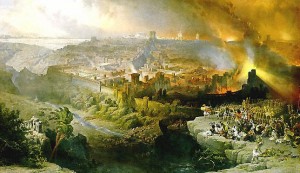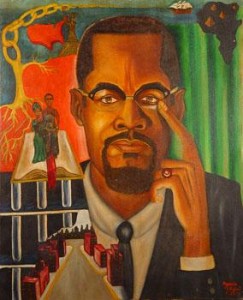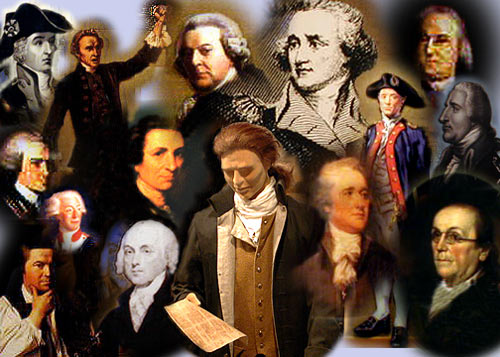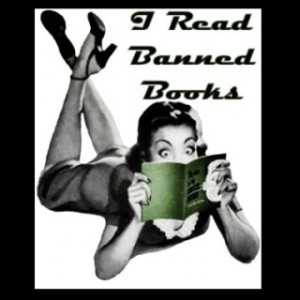In commemoration of banned book week. The best way to gain notoriety is to be banned.
The Articles of Rebellion
Everybody likes a rebel, or at least likes to believe in their own internal rebellious nature. Rebellion is the expression of the two year old shaking his head “no”, the teenager in spiked hair and rhinestone glasses, the music that changes generationally with the moods and perceptions of the youth. Rebellion was Robin Hood, The Lone Ranger, The Dukes of Hazards and Indiana Jones. Rebels were good people living in a disturbed world.
The consequences of rebellion are rarely looked at in a negative light. Rebellion brought an end to slavery, gave wings to woman’s suffrage, improved the working conditions of the industrial laborer. Yet, the articles of rebellion are.
At the onset of the American Revolutionary War, Thomas Paine observed, “these are the times that try men’s souls”. While his fiery pen fueled the cause of rebellion and set the tone for the craftsmanship of the American Constitution, Thomas Paine, the writer, the rebel, wasn’t greatly appreciated during his life time. Viewed as a traitor to the monarchy, his book, “The Rights of Man”, was banned in England. He was declared an outlaw. He moved to France where he was elected to the National Convention (1792 – 93). After criticizing the Reign of Terror, he was imprisoned by Maximilien Robespierre(1793 – 94). His “The Age of Reason” (1794, 1796), the first part of which was published while he was still in prison, earned him a reputation as an atheist, though it in fact espouses Deism. He returned to the U.S. in 1802; criticized for his Deist writings and little remembered for his service to the Revolution, he died in poverty.
The objective of banning the words of a creative artist to retain the existing status quo serves very little purpose. The song, “Eve of Destruction”, written by P.F. Sloan in 1965 and brought to instant popularity by singer, Barry McQuire, probably would not have become the iconoclast of the youthful revolutionary movement of the 1960’s if an immediate uproar had not been produced over its release. The song was banned on several American radio stations, as well as “Radio Scotland”, and put on a restricted list by BBC, which declared they would not play it on their general entertainment programs.
The American media helped popularize the song by using it as an example of everything that was wrong with the youthful generation. A conservative group called “The Spokesmen” retaliated with a song, “Dawn of Correction”, and a few months later, Green Beret medic Sargent, released the patriotic “Ballad of the Green Beret”. Record sales sky rocketed as the disc jockeys at the stations that had not banned the music deliciously announced that it had been banned in Boston.
Not long after the song’s introduction, McQuire became a born again Christian, divorcing himself from the lyrics’ message and sticking to contemporary Christian songs. He never again produced music that found its way into America’s top hits.
The censorship of “Eve of Destruction” only added fuel to the fire of a growing counter-cultural movement. The rebellion rumbled through a drop-out society, disillusioned with the values set on monetary goals, questioning the moral grounds for U.S. involvement in the Vietnam War, protesting against segregation and racial discrimination. It was a generation enthralled with contemporary literature and the exploration of psychedelic drugs. Hermann Hesse, practically dismissed by his own generation became a demigod to the students of rebellious authors. Dr. Timothy Leary, who used lysergic acid in his studies of the human mind, was declared a hippie, a radical, a self-made guru, but embraced by a generation of college educated rebels.
His studies, fully acknowledged by the academic sciences, are completely dismissed by the psychological profession. States Robert Anton Wilson, “None of Dr. Leary’s most important studies have either suffered refutation or enjoyed confirmation, because enacted law, statues enacted after and because of Dr. Leary’s research – makes it a crime for any other psychologists or psychiatrists to replicate such research. I know you’ve heard that the Inquisition ended in 1819, but in many areas of psychotherapy and medicine, the U.S. government has taken up where the Vatican left off.”
Up in Arms
It seemed in those rebellious years of the nineteen sixties and seventies, the lid had been taken off book banning. The entire arena was open to free speech. While “To Kill a Mockingbird” and “Cry the Beloved Country” became popular high school readings, the counter-culture movement drenched itself with “Bury My Heart at Wounded Knee” and the tales of Carlos Casteneda. Enter Malcolm X.
Born in 1925, Malcolm; Christened Malcolm Little; had a troubled childhood. His father, a Baptist preacher was forced to leave the state of Georgia while his wife was still pregnant with him for supporting the Universal Negro Improvement Association by preaching from the pulpit. He was told he was stirring up trouble within the black community. He was placed in a juvenile home in 1939 after his mother was declared legally insane.
He was placed in several foster homes over the next few years and worked a variety of jobs, primarily menial labor. While in school, he had once told his favorite teacher he would like to become a lawyer. She answered, “that’s no realistic goal for a nigger.”
In 1943, he applied for military service with the U. S., which found him “mentally disqualified” because of psychopathic personality inadequacies, sexual perversion, psychiatric rejection; and was classified 4F.
Between 1944 and 1946, he committed a string of thefts and larceny, and was sent to prison and later to a reformatory to serve fifteen months where he was introduced to Nation of Islam (NOI) by one of the inmates. He became an active minister of NOI, becoming identified as official minister of the NOI Temple No. 12 in Philadelphia.
As a speaker, Malcolm began to receive quite a bit of notoriety. In 1959, he was the subject of a television documentary entitled, “The Hate that Hate Produced”. In 1960, he debated with William M. James on the WMCA radio show called “Pro and Con”. The topic was “Is Black Supremacy the Answer?”
His talks included visits with Fidel Castro, Cassius Clay, who later reverted to Muslim and took the name, “Muhammad Ali”, and Martin Luther King, whom he purportedly telegraphed, saying that on King’s word, he would send some of his brothers to give the KKK a taste of their own medicine. He alienated himself from members of the NOI when he accused Elijah Muhammad, a top leader with the NOI, of adultery. The rift became irreparable when he told “Ebony” magazine, that the Black Muslim leaders “have got to kill me. They can’t afford to let me live. . . I know where the bodies are buried. And if they press me, I’ll exhume some.” The NOI then sent Malcolm a certified letter requesting that he return all NOI property, including the house in East Elmhurst.
The foster child whose education began in prison eventually rocked the world. He spoke at Universities in England, rallies in Africa, sponsored by America’s College Radio. He was assassinated in 1965 by a black male later identified as Talmadge Hayer (a.k.a. Thomas Hagan).
The Quiet Censorship
While America reeled from the effects of its uncensored public, another type of banning occurred. The invisible iron curtain was pulled shut between the philosophies of Western and Eastern political dynamics.
Faces all have an honest look in sleep.
Only when they wake does good and evil show in them.
Good and evil are not qualities born in man:
More often than not, they arise from our education.
The above poem was written by Ho Chi Minh and is an excerpt from his book, “The Prison Diary of Ho Chi Minh”, which is nothing more than a collection of beautiful, poignant poetry. As the leader of the opposition in Vietnam, he was declared an enemy of the American people and his books were banned. The history of his early support for American democracy and his eagerness to meet with John F. Kennedy, who was scheduled for a visit that was aborted by his assassination in Dallas, Texas, was swept under the rug. Ho Chi Minh was censored, not because of what he wrote, but because of who he was.
The economic collapse of the Soviet Union and the opening of China for Western commerce has opened the Eastern bloc to trade, but it has failed to advance the communications of its philosophers, artists and writers. The quiet censorship of today hides behind a veil of false popularity propped by media ratings. It skirts the underlying causes of rebellion, scuttling off into safe issues and on demand paid article advertising. The quiet censorship concerns itself with political etiquette instead of the autonomy of the author. The writer in rebellion is no longer met with disclaimers by the more conservative peers and colleagues, simply ignored. The voice of revolutionary ideas is suppressed.
These are trying times. They are times when the information age load you with so much information, it’s difficult to sort through the pile and form your own opinions. These are times when leadership abilities cave to the demands of media attention and corporate funding. These are times that try people’s souls to the point where they question the existence whether humankind has any attributes beyond animal instincts and desires. These are times when the creative artists must climb to their feet and brush off the crumbs of ignominy. They must pioneer into the worlds of alternate perception, cross the cultural/ social barriers, create bridges of communication and hope that they are loud enough, strong enough and radical enough to be banned in Boston.
http://www.answers.com/topic/thomas-paine
http://www.brothermalcolm.net/mxtimeline.html
http://www.hochiminh.org/Pages/frame.html



My favorite banned books:
“Brave New World” – Huxley
“Animal Farm” and “1984” – Orwell
“The Lottery” – Jackson
“The Prince” – Machiavelli
Anyone else have some favorite banned books?
Fix the date for the assassination of Malcolm X–not 1945 but 1965 (I think). A good article that should make everyone think about banned books and the influence they have–if not immediately after the test of time.
[…] This post was mentioned on Twitter by Joe Nowak and Joe Nowak, Amie_crs. Amie_crs said: Subversify: Banning the 21st. Century Writer: By: Karla Fetrow- The objective of banning the words… http://bit.ly/alWb1z #subversify #GSB […]
“The Satanic Verses”, for illustrating that banning a book is a surefire way of getting utter unreadable garbage to sell.
wonderful writing .. society ultimately makes the only valid decision about the worth of any idea .. banning books makes a lot of garbage temporarily important .. what is universal and important is always remembered .. if not now than forever ….. (BTW .. thanks for the candy !!)
At the top of my favorites would be the Mark Twains- Your Huckleberry Finn and Tom Sawyer.
But I also have a special spot for Judy Blume who introduced me to sexuality.
Blood and Chocolate by Annette Curtis-Klause which is one of the best done werewolf books ever in my opinion not to mention her vampire book, Silver’s Kiss which is actually hard to find.
I also love The Witches by Roald Dahl. In fact I love most of the banned kids books including Captain Underpants…how weird that that was banned, and in the 90’s!
There are so many great good things that have been banned or made hard to get. And don’t you think the publishing industry itself kinda bans stuff simply by deciding something “won’t sell” and not offering contracts? How many many good stories are there out there that will never see the light of day? Isn’t that a sort of bannishment?
My favorite banned artwork is not a novel but an album, “The Future of War” By Atari Teenage Riot. With tracks like “Burn Berlin Burn!” and “Destroy 2,000 Years of Culture”. It was banned in Germany and the the German government sent the band a 40 page document explaining why the band was a ‘threat to society’. I saw them live in Montreal last weekend and they were having quite a laugh about it.
http://en.wikipedia.org/wiki/The_Future_of_War
Very good article, Karlsie. Banning books is an interesting discussion, especially when considered in the context of banning on moral grounds and banning on on political/social grounds. What really counts as banned anymore? Is it banned when a network pulls a comedy episode because of possible terrorist retaliation? Is it “banned” when a few libraries and bookstores decide they personally don’t want a book in their collection because their students are believed to be (and probably are) stupid and won’t understand the true implications of that controversial book?
Or my favorite, is a book that is considered “unpublishable” or anti-commercial, which is the heart of the publishing industry, truly banned or perhaps rejected because of censorship reasons?
I don’t think there is any easy answer. But you know you’ve made it as an author whenever your book gets “banned.”
Joe, thanks for the date correction. It was a typo. Malcolm X was assassinated in 1965. The story around his assassination is as fascinating as his life and the temptation to write more was almost overwhelming. I had to keep reminding myself not to go off track of the general subject.
Christopher, i was just a little staggered by your banned list. I suppose perception is heavily marked by time period and demographics. When i was in the eighth grade, Huxley was required reading. The Lottery was also required. You would not have been able to pry Orwell’s books from my dad, unless it was from his cold, rigor mortis approved fingers. Because of our circumference to Russia, however, any written work beyond “The Gulag Archipelago” was virtually impossible to get during the Cold War. It wasn’t until i traveled to the Continental US that i was introduced to Dostoyevski, who immediately became my favorite author.
Rich, you’re very welcome for the chocolates, although i thought all this gratitude for services and donations were supposed to be kept anonymous. It was my way of thanking you for your active support.
Grainne, i think your favorites list illustrates the growing tendency to quietly censor books that do not comply with political etiquette. While Twain was not very good at representing minorities beyond the stereotypical perception of his time period, his focal point was two young, rural, orphaned boys; one raised by his aunt, the other primarily by his survival instincts; and their lives on the river. Chances are, if he had created a Black or Native American hero for his stories, the books would not have been so widely accepted. It was a time period when America was basically rural, basically agricultural, and the stereotyping of minorities was not a consideration for censorship. I’m sure if Twain was alive today, his books would carry a completely different perception, but the adventure would have been different. There would have been a gap left in the history of American culture. Mark Twain, in bringing out the best turn of the twentieth century mainstream, inadvertently and unintentionally also brought out some of the worst.
Twain was not the only person guilty of conducting this ignominy. For those who champion the framers of the Constitution as ancestral gods, i suggest they read in depth The Federalist Papers, Common Sense and even the basis for the Magna Carta. Although the proposition is that all (white) MEN are created equal, minority races were referred to as barbaric heathens, sometimes as being little more than animals. Largely because of the eloquence of words, moral perceptions evolved.
Honesty is really the best recourse. At the last few writer’s conventions i attended, there was a lot of debate over what constitutes honest writing. The popular opinion seems to be that honesty entails exposing the sordid details of your personal behavior. I disagree. Honesty is your true feelings about the world around you, whether your opinions are the fashionable appointment or not. You don’t have to bring out these feelings in a pimped up autobiography. You can express them in fictional characters, backgrounds and adventures, but the feelings should always be honest. They are the emotional struggles between pride and humility, survival and greed, love and vengeance, and the consequences of choices.
Censorship is anal retentive. You can’t force people to enjoy a certain type of reading over another. Banning books only makes people curious as to why they were banned. A book that gains a lot of popularity despite efforts to discredit it is usually one that contains the thoughts and ideas that had been fermenting in a lot of other people’s minds; they just hadn’t found the words yet to articulate them. Once they see in writing what they had been subliminally thinking, they are grateful that someone finally expressed it.
[quote=Karlsie]Christopher, i was just a little staggered by your banned list. I suppose perception is heavily marked by time period and demographics. When i was in the eighth grade, Huxley was required reading. The Lottery was also required. You would not have been able to pry Orwell’s books from my dad, unless it was from his cold, rigor mortis approved fingers. Because of our circumference to Russia, however, any written work beyond “The Gulag Archipelago” was virtually impossible to get during the Cold War. It wasn’t until i traveled to the Continental US that i was introduced to Dostoyevski, who immediately became my favorite author. [/quote]
I’ll admit that the bans on these books are a little dated, but nonetheless all of these books were at one time or another considered threats to one social order or another. Let me give you a breakdown…
1. “Brave New World” – banned in Ireland in 1932, due to alleged references of sexual promiscuity.
2. “Animal Farm” – the author’s preface suppressed in nearly all of its editions. During 1940 – 45, Allied forces found this entire book to be critical of the U.S.S.R., and therefore the text was considered to be too controversial to print during wartime. Publishers were reluctant to print the novel then, and copies of it were withdrawn from circulation at libraries, etc. Also, the novel was banned in the schools of the United Arab Emirates, because it contained text or images that goes against Islamic and Arab values in 2002.
3. “1984″ – banned in Soviet Union in 1950, it was not “legalized” until 1990.
4. “The Lottery” – banned in South Africa during Apartheid
5. “The Prince” – was put on the “Index of Prohibited Books,” along with the rest of Machiavelli’s works, by the Vatican in 1559.
Sove of these might have been required reading by the time you got to high school, but at one point in history all these books were considered threats to society.
I’m glad you clarified, Christopher. Demographics and time period have so very much to do with “common knowledge”. We are isolated by our formal education and our media coverage. Our knowledge base doesn’t go far beyond our personal experiences without the conscious effort to expand it. The authoritative, educational/social ranking ladder energetically strives to shape our opinions. The only true liberation of the mind is to seek out those books we’re told we shouldn’t read. Should i say, there is one banned book no one has touched down on yet? The Anarchist’s Cookbook. Maybe it does have just a little more information than people are comfortable with making public. I also remember that Mother Earth News was quite a scandalous little magazine before it went corporate.
I still feel that honesty is the best policy, though I thought it was going to get me lynched here in Texas a few times.
[quote=Karlsie]I’m glad you clarified, Christopher. Demographics and time period have so very much to do with “common knowledge”. We are isolated by our formal education and our media coverage. Our knowledge base doesn’t go far beyond our personal experiences without the conscious effort to expand it.[/quote]
That’s certainly true – it always pays to keep an open mind to new information.
[quote=Karlsie]The only true liberation of the mind is to seek out those books we’re told we shouldn’t read. Should i say, there is one banned book no one has touched down on yet? The Anarchist’s Cookbook. Maybe it does have just a little more information than people are comfortable with making public.[/quote]
This book contains “recipes” for all manner of home-made weaponry – and various portions of those “recipes” are inaccurate and potentially dangerous to make. If it’s a guide to make-shift weapons you seek, I suggest you read TM 30-210: a little instruction manual created by the U.S. army to train special forces in the creation of things like home-made gunpowder and nail bombs (note: I take no responsibility for *anyone* that decides to actually use that information – this is dangerous shit, so I recommend that tread carefully if you make the decision to put that manual’s teachings into practice: consider yourselves warned).
I’m laughing to myself Christopher, because that was pretty much how i felt the first time i got a look inside The Anarchist Cookbook. My most immediate thought was, “these boys are going to blow themselves up”. I can’t really recall whether those boys blew themselves up or not. They were restless times; times when people shifted themselves in and out of my life like playing cards. Still, i thought it was a good idea to throw out the book and see if it generated a response.
Once again we live in restless times; not quite as intense yet as when people learned that rock and roll meant you learned how to rock and roll over so you can get back on your feet. We haven’t felt the steamy oppression of muttered salutes, “to my friends who are dead”, while the Rolling Stones played in the background, “all my friends are under cover of the night.” The United States hasn’t really learned rebellion yet. It’s just going through the motions.